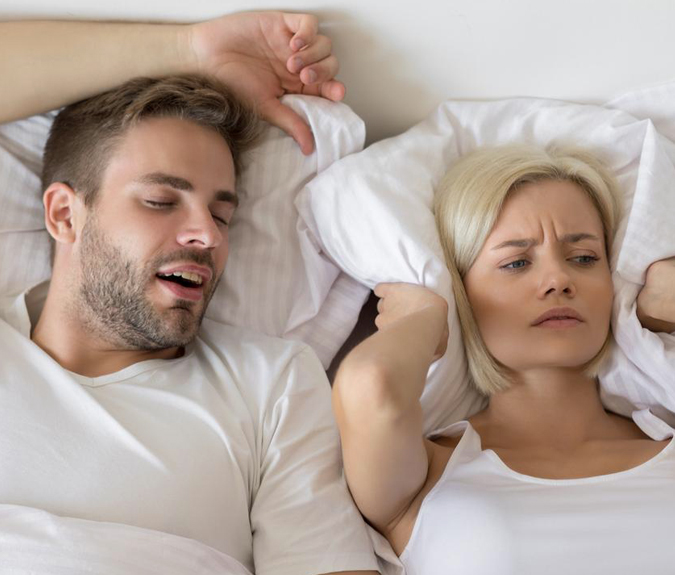
What is Sleep Apnea?
In simple terms, sleep apnea occurs when there are repeated pauses in breathing during sleep. Each time this happens, the brain wakes the body up partially to get oxygen. These pauses can occur numerous times in one night, preventing restful sleep.
The most common type of sleep apnea is obstructive sleep apnea (OSA), which happens when the airway is blocked by relaxed soft tissues in the mouth or throat. On the other hand, central sleep apnea (CSA) occurs when the brain fails to send signals that control breathing during sleep. There is also a third type called complex sleep apnea, which is a combination of OSA and CSA.
Common Symptoms of Sleep Apnea
- Loud, chronic snoring
- Excessive daytime drowsiness
- Waking up gasping for air or out of breath
- Frequent morning headaches, sore throat, or dry mouth
- Trouble concentrating or remembering things
- Mood swings or depression
- Persistent weight gain/trouble losing weight
- Sexual dysfunction
Sleep Apnea & Snoring
Snoring is a common sign of sleep apnea, but not everyone who snores has the disorder. Snoring occurs due to a partial blockage of the airway, causing tissues in the mouth and throat to vibrate.
While snoring may be seen as a nuisance, it can indicate a lack of quality sleep and increase the risk of developing a sleep disorder in the future. Our practice offers snoring treatment, including oral appliances similar to those used for sleep apnea. If chronic snoring is an issue, please contact our office for assistance in Tomball, TX .
The Dangers of Sleep Apnea
- Feeling chronically fatigued and exhausted during the day
- An increased risk of heart problems
- Weight gain
- Trouble with memory and paying attention
- Depression or irritability
- Dozing off while driving
Sleep Apnea Treatment Options
Oral Appliance Therapy
Combined Therapy
Oral Appliance Therapy Vs CPAP Therapy
Although CPAP therapy is commonly regarded as the most effective treatment for sleep apnea, it is unfortunate that up to half of CPAP machine users do not utilize them. This is often due to the disruptive noise emitted by the machine, which can disturb both patients and those nearby who are trying to sleep. Additionally, many individuals find the masks used in CPAP therapy to be highly uncomfortable.
In contrast, oral appliance therapy offers a quieter and more comfortable alternative. These appliances are customized to fit the patient's unique smile, resulting in reduced discomfort. If you are unable to tolerate CPAP therapy, we encourage you to contact our office to explore the possibility of oral appliance therapy as a viable alternative.
Is Oral Appliance Therapy Covered by Insurance?
Interesting Sleep Apnea Facts
- Generally, sleep doctors believe that average healthy adults should only need about 7-9 hours of sleep each night to feel well rested during the day.
- Sleep apnea can make it mor difficult to lose weight as well as keep it off
- Chronic sleep deprivation can cause memory problems because it prevents the brain from being able to properly organize information at the end of the day.
- Many people who suffer from sleep apnea mistakenly believe they are insomnics because the breathing cessations cause them to wake often.
- Snoring is one of the most common signs of sleep apnea, but not all people who snore have the condition. However, those who do consistently snore are most liekly to develop a sleep disorder in the future.
- It has been shown in multiple studies that driving while drowsy is more dangerous than driving while drunk.
- Up to 80% of all people with sleep apnea are either undiagnosed or misdiagnosed.
- If you frequently wake up in the middle of the night to go to the bathroom, it could be a sign of sleep apnea. Many apnea patients are unaware that they are being woken up by a stoppage in breathing.
- Nighttime teeth grinding, AKA bruxism, may also indicate sleep apnea as well.
- A larger-than-average neck or tongue can also cause a person to have sleep apnea symptoms.
